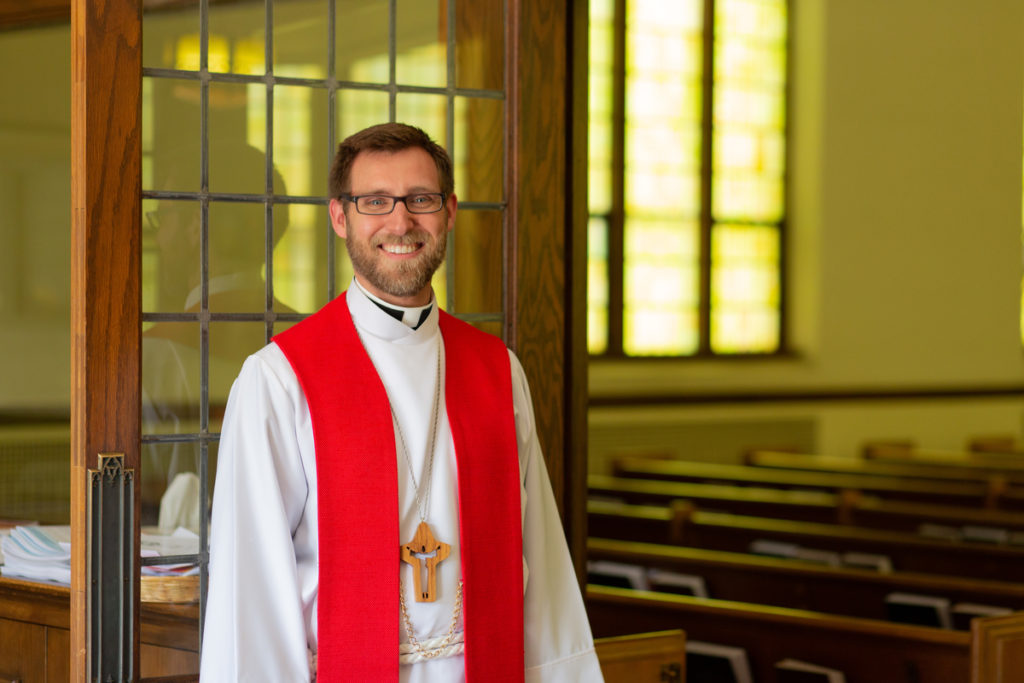LCMC GATHERING – A MATTHEW 17 MOMENT
The LCMC (Lutheran Congregations in Mission for Christ) gathering was held on October 5. It was inspiring as always. Because of COVID, they had to limit the number of voting delegates, and there were no vendors, so I did not have my typical opportunity to reconnect with people and make new friends. But I found watching the event online to be very uplifting and renewing.
I want to thank Mark Vander Tuig for his ten years of ministry and leadership as Service Coordinator. He brought energy, passion, and commitment to the position. I also want to assure Mike Bradley, a fellow Arizonan and new Service Coordinator, of my prayers.
What I would like to do is to share with you the main points that Gemechis Buba made in his keynote address. Dr. Buba is Assistant to the Bishop for Missions for the NALC (North American Lutheran Church). His presentation was awesome, as always.
He focused on the account of the transfiguration in Matthew 17. He spoke of this chapter as a transition chapter. From this chapter on, everything is changing in the life of Jesus. In the same way, with COVID, everything is changing in the life of the church. We are in a Matthew 17 moment.
In the previous chapter – in Matthew 16: 18 – Jesus says, “I will build my church, and the gates of hell will not prevail against it.” Here Jesus mentions the church for the very first time, but in the account of the transfiguration we see the ten deadly mistakes of the church. These mistakes include the following.
Wanting to maintain the status quo. In verse 4 – after Jesus was transfigured and Moses and Elijah appeared – Peter said, “Lord, it is good for us to be here.” How often does God have something better in mind for us, but we want to keep things the same? We say, “Lord, it is good for us to be here.”
An excessive emphasis on buildings. Again in verse 4, Peter said, “If you wish, I will make three dwellings here.” It is interesting that Jesus did not respond to Peter’s offer. With the pandemic, many churches are closed, but much ministry is going on and there is a multitude of gatherings in homes. The glory and power of God are not contained within four walls.
Speaking rather than listening. Verse 5 says, “While he (Peter) was still speaking.” Peter was still speaking when he should have been listening. Peter was still speaking when the moment of transfiguration was happening. Even during COVID, God is doing some incredible things, but sometimes we are speaking when we should be paying attention.
Detaching ourselves from the overwhelming experience of the presence of God. In verses 6 and 7 the disciples “fell to the ground and were overcome by fear, but Jesus came and touched them.” When and how do we detach ourselves from the overwhelming touch of God?
Not focusing on Jesus. Verse 8 says, “When they looked up, they saw no one except Jesus himself alone.” Are we distracted, or are we Christ-centered and Christ-focused?
Focusing on the mountain top experience while neglecting the needs of people in the valley. Verse 9 says, “As they were coming down the mountain.” Peter had said, “It is good for us to be here.” But Jesus said, “No, we need to go down into the valley.” Too often we make the Sunday morning gathering, rather than our mission in the world, the most important thing.
Replacing the theology of the cross with the theology of glory. In verse 9 Jesus ordered them, “Tell no one about the vision until after the Son of Man has been raised from the dead.” Jesus now transitions from their most remarkable mountain top experience (glory) to talking about his suffering and death (the cross). But how often would we rather remain with the glory?
Not walking and living in the hope of victory. The church is the only institution that knows how the story ends. Which is why our message is so important and so relevant. Jesus had said, “Do not tell anyone until the Son of Man has been raised from the dead.” We must speak the whole Gospel message because Jesus has been raised from the dead.
Not knowing, and not being able to respond to, the needs of the world. In verses 14-15 a man came to Jesus, pleading, “Lord, have mercy on my son.” The disciples had not been able to help him. They had not been able to cast out the demon because of their lack of faith. There is much suffering – much demonization in the world. But often we are not able to help because of our lack of faith and our lack of knowledge of the Word of God.
Not preaching the Gospel with simplicity and clarity. Verses 22-23 tell us, “As they were gathering in Galilee, Jesus said to them, ‘The Son of Man is going to be betrayed into human hands, and they will kill him, and on the third day he will be raised.’ And they were greatly distressed.” Here we see the three major parts of the Gospel message: the identity of Jesus as the Son of Man, the cross (“he will be betrayed and killed”), and the resurrection (“on the third day he will be raised”). We need to preach the Gospel message with clarity, simplicity, power, and joy. And not – like the disciples – because of COVID – be “greatly distressed.”
* * * * * *
ELCA REMOVES ALL DOUBTS
If anyone still thinks that the ELCA is at all interested in even listening to – let alone considering – traditional views. If anyone still believes that the ELCA has any intent to honor the commitments made at the 2009 Churchwide Assembly to also respect traditional views, they need to realize that the ELCA has removed all doubts. It has no intention to do anything but totally dismiss and ignore those who disagree with the direction in which the ELCA has chosen to go.
In the June 2020 Letter from the Director I told about an article that I had written concerning Episode 1 of Season 5 of the Netflix series Queer Eye. This episode featured an ELCA pastor by the name of Noah Hepler, who received help in accepting his sexual identity from a team of LGBTQIA+ persons, known as the Fab 5. A link to my June 2020 Letter from the Director can be found here. A link to my full article can be found here.
Subsequently I learned that Mr. John Potter, ELCA Content Editor, had written an article entitled, “How Noah Hepler found ‘reawakening’ in Queer Eye.” His article was posted on the Living Lutheran website on June 22. A link to his article can be found here. I went to the website and saw where it was written, “We are a church that values and encourages diverse voices and lively dialogue in our faith and life. Living Lutheran is an opportunity for church members to express individual perspectives, and does not necessarily reflect official positions of the Evangelical Lutheran Church in America.” Because of their statement that they value and encourage “diverse voices and lively dialogue” and want to give church members “an opportunity . . . to express individual perspectives,” I thought that they might be willing to also post a more traditional perspective on the same episode. Therefore, I called and left a voice mail message for Mr. Potter.
In a very timely way I received an email from Mr. Potter, in which he wrote, “Thank you for reaching out. We would be interested in reviewing a draft of your piece.” He also mentioned that they generally ask that articles be under six hundred words in length.
I worked very hard to reduce my article to the required length. The next day I sent him my shortened article, a copy of which can be found here. He wrote back, “Thank you! . . . . We will review and be in touch shortly.” Two and a half weeks later I heard back. He said, “I apologize; I’ve learned that we have a policy of not publishing unsolicited review submissions we haven’t commissioned. Sorry for not having initially replied with that position.”
A link to my response to him can be found here. As I knew would happen, and as has consistently happened whenever I have challenged the ELCA to abide by, honor, and live up to its own promises and commitments, I have heard nothing.
In my letter to Mr. Potter I made several statements and asked several questions, none of which were responded to and/or answered.
First, in response to his statement, “We have a policy of not publishing unsolicited review submissions we haven’t commissioned,” I said that I felt that my article was “solicited” because when I asked him about it he told me to send it to him. I also asked about his use of the word “commissioned.” I said that I certainly was not asking for any payment for my article. I merely thought that Living Lutheran should be willing to publish another view of the Queer Eye episode.
Second, I shared that his reference to Living Lutheran policy raised four questions in my mind –
Is this policy in writing? If so, could I have a copy? When was this policy developed? Is it consistently followed?
Third, I reminded him of the fact that the 2009 human sexuality social statement described four positions, each of which would have a place within the ELCA. All four of those positions are more “conservative and traditional” than the full LGBTQIA+ agenda, which the ELCA now embraces.
I mentioned that at the bottom of his article, “How Noah Hepler found ‘reawakening’ in Queer Eye,” there are postings for a number of other articles, each promoting the LGBTQIA+ agenda and lifestyle. I clicked on several of the links and found that each of those articles also ended with postings for a number of other articles, each promoting the LGBTQIA+ agenda and lifestyle. So I asked him the following questions –
Were each one of these articles solicited and commissioned?
Has the Living Lutheran also posted a comparable number of – or even any – articles promoting traditional views?
If not, why not, since the 2009 ELCA Churchwide Assembly stated that there would be a place for all four views which were described in the human sexuality social statement?
Fourth, I reminded him of how one of the RESOLVED sections in the 2009 ministry policies states, “RESOLVED, that the Evangelical Lutheran Church in American make provision in its policies to recognize the conviction of members who believe that this church should not call or roster people in a publicly accountable, lifelong, monogamous, same gender relationship.”
In light of that RESOLVED, I asked –
What has Living Lutheran done – if anything – since 2009 to “recognize the conviction” and honor and support the position of those who hold to traditional views?
Fifth, I reminded him of the words which Living Lutheran uses to describe its own work –
“We are a church that values and encourages diverse voices and lively dialogue in our faith and life. Living Lutheran is an opportunity for church members to express individual perspectives, and does not necessarily reflect official positions of the Evangelical Lutheran Church in America.”
In light of those words I asked –
How can Living Lutheran claim to be valuing and encouraging “diverse voices and lively dialogue” and claim to be giving church members an opportunity to express individual perspectives if it will only publish material which is solicited and commissioned?
How can Living Lutheran claim to be valuing and encouraging “diverse voices and lively dialogue” if it only publishes articles which promote and advance the full LGBTQIA+ agenda and lifestyle and it does not give any space and time (let alone equal space and time) to any of the four positions which were described in the 2009 human sexuality social statement, including the two more traditional views?
I concluded my letter by asking him if he could help me understand how Living Lutheran fulfills its mission in a way which is consistent with its own stated purpose and in line with the social statement and ministry policies approved by the 2009 ELCA Churchwide Assembly.
I have not received a response. I did not expect to receive a response because ignoring, marginalizing, and dismissing is the way that the ELCA consistently deals with any view other than the preferred, official view. The ELCA consistently ignores, marginalizes, and dismisses anyone who seeks to challenge the ELCA to act in a more honorable and honest way. The ELCA has removed all doubts. It has absolutely no interest in any viewpoints, values, and perspectives other than its own.
If it is already this difficult to get the ELCA to respect what they committed themselves to in 2009, when there might still be a few church leaders left who were a part of the 2009 decisions, just think of how much more difficult it is going to be when there will be no one left who was present at the 2009 Churchwide Assembly. It reminds me of the verse near the beginning of Exodus, which says that “a new king arose over Egypt, who did not know Joseph” (Exodus 1: 8).
Seeking to be found faithful, Dennis D. Nelson Executive Director of Lutheran CORE [email protected]



















